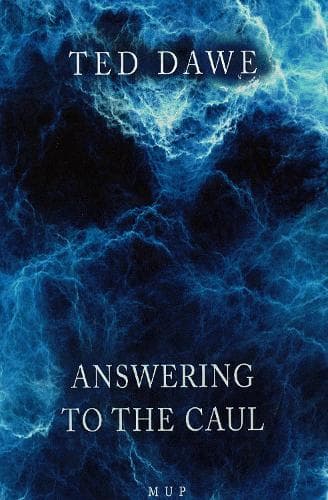Answering to the Caul
Reviewed by Sam Finnemore
Ted Dawe’s latest novel wears its symbolism on its sleeve – but protagonist and narrator Andrei Reti wouldn’t have it any other way, which makes all the difference. Born with a birth membrane or caul covering his head, he’s marked out by tradition for good luck and for protection from drowning but the luck is back-handed and the protection seems to have its own fairytale dark side.
Like Herman Melville’s Ishmael, Andrei is escaped alone to tell thee – and he’d appreciate the reference given he’s a precocious and non-stop reader who spends his childhood devouring everything from picture books to Tolstoy at equal opportunity. He’s marinated in the power of story and a sense that he’s marked out for something important, which also makes him an enthusiastic, interventionist narrator, keenly pointing out key moments and flagging his own digressions, and the tone of the story ages and matures along with him.
So the early chapters of Answering to the Caul have a vaguely nostalgic tinge to them, with Andrei roaming on a shiny American bicycle in party-line-era Ōtaki while his rakish dad graduates from horse-betting to bookmaking and treats himself to a gold-painted Valiant along the way. After a sharp decline in fortunes, Andrei and his book-loving mother wind up living an almost Depression-era existence of making do and, on Andrei’s part, pinching fruit from the neighbours as he gradually falls into the orbit of whānau with their own complicated pasts and presents.
Water is always there in the background. One of the first events recounted in the book is a near-drowning as a toddler in the bathtub, followed not long after by an awkward swimming lesson then, later in the book, a disastrous eel-fishing trip. Andrei attributes mythic weight to these incidents as they accumulate over time and they occasion some of the best descriptive writing in the book, particularly his imaginings of drowning – pressure, darkness, air bubbling up – and the subtle, startling depiction of the events at book’s end.
Those highlights stand out more because the narrative voice of Answering to the Caul is simple, almost matter-of-fact Kiwi memoir. It’s a nice reflection of the tension between Andrei’s perception of his caul-driven fate and the elements of his life and background that also add up to the person he becomes.
There’s deprivation, brushes with the law, various aspects of education and institutionally driven violence and its consequences, a repeat theme in Dawe’s writing and his engagement in public life and the spark here for some fiery destruction to offset all the watery ebbs and flows.
A coming-of-age story squarely, but not exclusively, aimed at an adult audience, the book incidentally puts the lie to some of the more prurient debate that swirled around Dawe’s earlier prize-winning young adult novel Into the River – there’s no sense of punches pulled here but no elements of (supposed) gratuitous shock value either. When the later action shifts to Thailand, Dawe’s characters themselves dismiss the lazy grubbiness of the stories expats tell each other, and Dawe doesn’t have much time for the seedier side of beachside life either, maintaining the focus kept throughout the rest of the book on Andrei’s complicated relationship to others and his own identity.
During a brief stint in university English study, Andrei recoils at being asked to take beloved works and “cut out important organs so I could hold them up to my lecturers”. For him, it’s the living story or nothing, something you can only make sense of in the telling. This is an obviously ambitious novel, and not entirely even throughout, but it has the marks of a story that Dawe is hungry to tell and that sense of a singular vision – plus the honesty and deceptive depth of Andrei’s narration – are more than enough to pull the reader along on its unconventional currents.
Reviewed by Sam Finnemore
